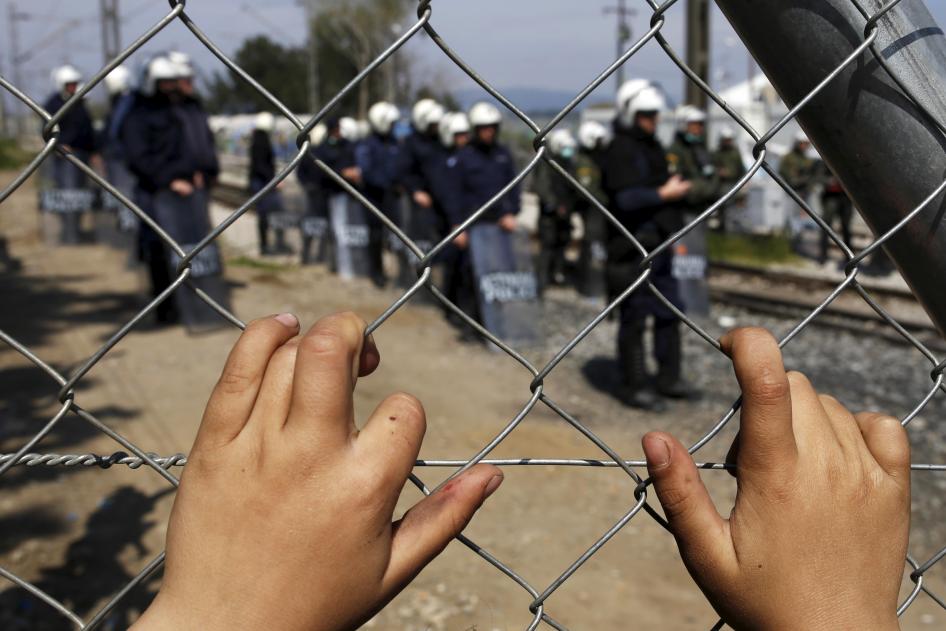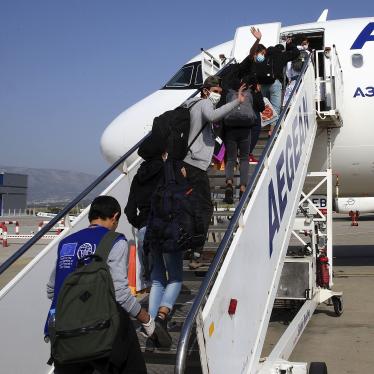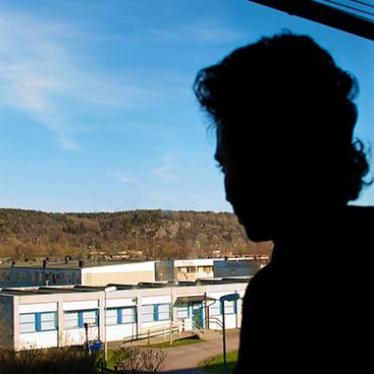(Athens) – Greek authorities should free the 276 unaccompanied migrant children currently detained in police cells and detention centers in Greece, Human Rights Watch said today in a letter to Prime Minister Kyriakos Mitsotakis. Releasing the children is all the more urgent amid the Covid-19 pandemic.
“The prime minister should act on his pledge to protect unaccompanied children and make sure that hundreds of vulnerable children are freed from dirty, crowded cells, sometimes alongside adults, where they are exposed to the risks of Covid-19 infection,” said Eva Cossé, Greece researcher at Human Rights Watch. “There is no excuse for failing to give these children the care and protection they need.”
According to the National Center for Social Solidarity, a government body, as of April 30, 2020, an estimated 276 children were in police custody awaiting transfer to a shelter. That is 19 more children behind bars than when Mitsotakis announced, in November 2019, the No Child Alone plan to protect unaccompanied children.
Human Rights Watch research has documented the arbitrary and prolonged detention of unaccompanied migrant childrenin police cells and other detention centers, in violation of international and Greek law. Under Greek law, unaccompanied children should be transferred to safe accommodation, but Greece has a chronic shortage of space in suitable facilities.
While they wait for placement in a shelter, unaccompanied children can be held for weeks or months in overcrowded and unsanitary conditions, sometimes with unrelated adults, in small police station cells and detention centers where following social distancing guidelines is impossible. They often have little access to basic health care and other services, hygiene supplies, or even natural light. In many cases, they do not receive information about their rights or about how to go about seeking asylum, and many experience psychological distress.
The recent decrease in the time that an unaccompanied child can be held in protective custody, from 45 days to 25, is a step in the right direction. But international human rights standards hold that immigration-related detention, including so-called “protective custody,” is never in the best interest of the child and should be prohibited due the harm it causes, Human Rights Watch said.
The detention of children for immigration reasons is prohibited under the United Nations Convention on the Rights of the Child. A 2019 UN global study on children deprived of liberty reported that even if detention conditions are good, detaining children exacerbates existing health conditions and causes new ones to arise, including anxiety, depression, post-traumatic stress, and suicidal thoughts.
The study highlighted that governments have found non-custodial solutions for unaccompanied children, such as open and child-friendly accommodation, periodic reporting, and foster families. There are always options available other than detention of children for migration-related reasons, the UN study said, and detaining children for their “protection,” even if alternative care is lacking, “can never be a justification.”
The UN children’s agency UNICEF has said that all governments should release children from detention, specifically including immigration detention, due to the Covid-19 pandemic.
On April 14, Human Rights Watch opened a campaign to #FreeTheKids, urging people to press Prime Minister Mitsotakis to immediately release unaccompanied migrant children from detention and transfer them to safe, child-friendly facilities. Transitional options could include hotels, foster care, and apartments under a Supported Independent Living program for unaccompanied children ages 16 to 18.
The European Commission should financially support Greece to create additional long-term care placement places for unaccompanied children. Other European Union members should speed up family reunification for children with relatives in other EU countries and should offer to relocate unaccompanied asylum-seeking children – even if they lack family ties.
According to the latest government data, since April 30, only 1,477 out of the 5,099 unaccompanied children in Greece were housed in suitable, long-term facilities. The rest are left to fend for themselves in overcrowded island camps or on the streets or are confined in police cells and detention centers on Greece’s mainland.








